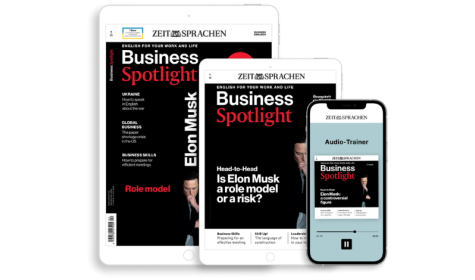Starten Sie den Audio-Text
Mit dem Audio-Player können Sie sich den Text anhören. Darunter finden Sie das Transkript.
Erin Perry: Finally, a personal question, Bob. What are your biggest challenges when it comes to focus in a work context and what measures do you take to overcome them?
Bob Dignen: Yeah, that’s an interesting question when it comes to applying these ideas to yourself. I mean, I’m in a service industry. I mean, at the end of the day, I’m a trainer, I’m a coach, I’m a team builder. I’m very, very, very, very client-centric. So, with this kind of role, wearing this kind of hat, it is very easy to say yes too often to clients. Saying yes, I’m trying to do the right thing. I’m trying to deliver what is needed, I’m trying to stay above the competition because I say yes when they say no. However, if you live a “yes mentality”, you create exponential workloads for yourself. And, you know, that’s one of the big dilemmas I etw. gegenüberstehenface on a regular basis when to say no to clients — and not just at the right time for me, but at an acceptable time for them.
The second dimension of challenge for me is my work is quite creative. I mean, I write, I develop materials, I think a lot about the field of leadership and coaching. The problem with goal-setting and planning is that you can’t etw. zeitlich planenschedule creativity. Creativity can sometimes take a day, sometimes it could take a minute. So there’s a very big variability in terms of my output because it’s creative. So, I’m focused on being creative, but how long it takes to get there is nicht vorhersagbarunpredictable, which makes kind of my working life challenging.
And I guess the third dimension is probably on a more personal note. I think I’ve learned to focus less on work. I think that has been probably a regular battle for me over the last ten years, to decide that my focus should not just be work. My focus should be non-work, it should be me, and actually, yeah, etw. herausarbeitencarving out a more ganzheitlichholistic and balanced sense of life yet. You know, that is a never-ending battle.
Bob Dignen: Yeah, that’s an interesting question when it comes to applying these ideas to yourself. I mean, I’m in a service industry. I mean, at the end of the day, I’m a trainer, I’m a coach, I’m a team builder. I’m very, very, very, very client-centric. So, with this kind of role, wearing this kind of hat, it is very easy to say yes too often to clients. Saying yes, I’m trying to do the right thing. I’m trying to deliver what is needed, I’m trying to stay above the competition because I say yes when they say no. However, if you live a “yes mentality”, you create exponential workloads for yourself. And, you know, that’s one of the big dilemmas I etw. gegenüberstehenface on a regular basis when to say no to clients — and not just at the right time for me, but at an acceptable time for them.
The second dimension of challenge for me is my work is quite creative. I mean, I write, I develop materials, I think a lot about the field of leadership and coaching. The problem with goal-setting and planning is that you can’t etw. zeitlich planenschedule creativity. Creativity can sometimes take a day, sometimes it could take a minute. So there’s a very big variability in terms of my output because it’s creative. So, I’m focused on being creative, but how long it takes to get there is nicht vorhersagbarunpredictable, which makes kind of my working life challenging.
And I guess the third dimension is probably on a more personal note. I think I’ve learned to focus less on work. I think that has been probably a regular battle for me over the last ten years, to decide that my focus should not just be work. My focus should be non-work, it should be me, and actually, yeah, etw. herausarbeitencarving out a more ganzheitlichholistic and balanced sense of life yet. You know, that is a never-ending battle.
Neugierig auf mehr?
Dann nutzen Sie die Möglichkeit und stellen Sie sich Ihr optimales Abo ganz nach Ihren Wünschen zusammen.



